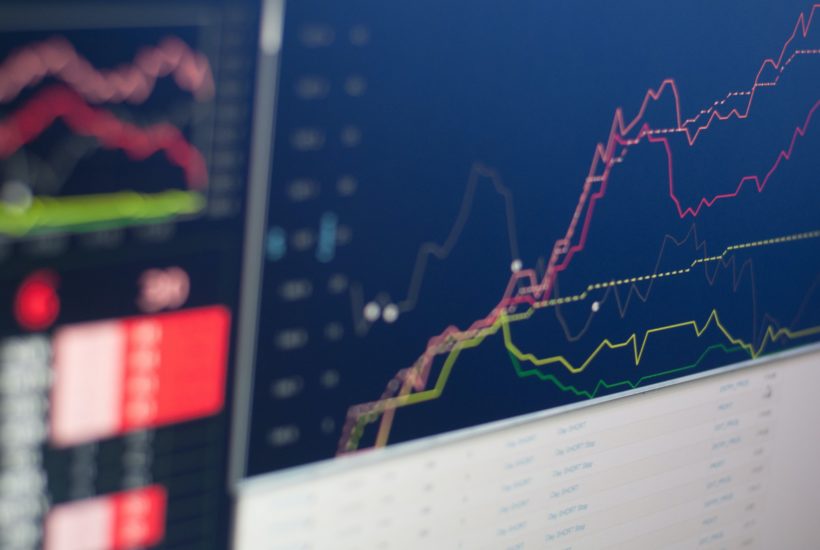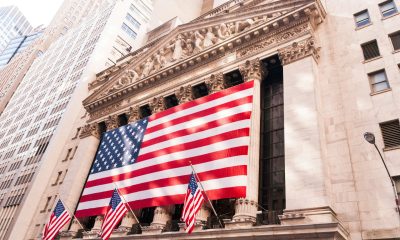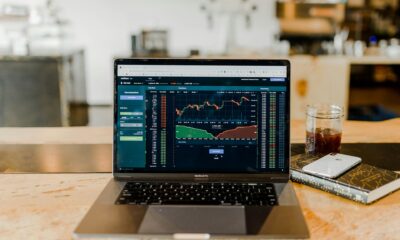Featured
Why is the stock market up?
A global pandemic. The President impeached. Raging wildfires across the west coast. Riots throughout major cities. The Olympics cancelled. The UK leaving the EU. The three worst single day point drops in stock market history, all in the same month! This article may not be a leading indicator for those looking for stock tips, but hopefully it rationalizes some irrational behavior.

Imagine if your financial advisor gave you a crystal ball last Christmas, and in it were these incredible images of unrest around the globe for the year 2020. Suffice it to say, the rational investor would likely move all their assets to cash, maybe even short the markets, or just buy gold coins and hide in a bunker. What an irrational mistake that would have been, as the SP500 currently holds a positive return of 8.47% YTD.
So, one must ask, why is the stock market going up when the world seems to be going down? Economists typically refer to the stock market as a leading indicator, meaning it foreshadows economic results before the actual economy realizes them. Did the outstanding returns of 2019 predict a robust 2020? Not quite. Do the inexplicable returns of 2020 mean an enjoyable 2021 for America? If only I could enter a confused emoji. Let’s see who is manipulating the markets and how it is being done.
The Fed
In March of 2020, as COVID-19 began to ravage America and the rest of the world, the Federal Reserve conducted the biggest response in history. The Fed issued emergency loans to banks and local governments to keep the credit markets flowing. Simultaneously, they slashed interest rates to near 0%, from close to 2.5% in 2019, effectively making access to capital “cheap”. Lastly, the Fed purchased debt in the form of treasuries and mortgage-backed securities, increasing their asset holdings from $4.16 trillion in February to over $7 trillion by September.
Not only did this flood the American economy with liquidity, but the resulting historically low interest rates on safe assets (10yr Treasury Note is 0.73%) leave investors searching for yield, primarily in the stock market.
Tech Stocks
While news channels tout the positive returns of the SP500 or DJIA as a symbol that American business is thriving, investors need to look under the hood. Enormous tech companies have the ability to outweigh losers in other sectors; see the Nasdaq return of 31.49% YTD versus DJIA of 7.70% YTD. Apple alone is worth more than $2 trillion, more than the entire Russell 2000 small-cap index combined.
Individual Investors
With the advent of online trading platforms, some for free and without any trading commissions, just about anyone can become an investor in the markets, especially when working from home or having been laid off in the middle of a quarantine. In 2020, 19.5% of US equity trading volume came from individuals, an all-time high.
President Donald J. Trump
The president proudly touted the historic success of the stock market following his Tax Cuts and Jobs Act of 2017. Up until 2020, the stock market appeared to be in line with the overall health of the economy, a fair scorecard for his administration’s progress. However, this year, amidst the novel Coronavirus, financial data has gone haywire. In an election year, Trump can’t point to high unemployment or low GDP to stir up confidence, factors not easily fixed. However, he can preach positivity and pressure for monetary and fiscal stimulus which can all affect stock market activity instantaneously, a success he can still cling to until November.
This article may not be a leading indicator for those looking for stock tips, but hopefully, it rationalizes some irrational behavior. The moral of the story should be that the stock market is fickle. As a CFP, I’ve heard clients say hundreds of times that the market is supposed to go up or is supposed to go down. The markets aren’t supposed to do anything. Rather they are a measure of thousands of interrelated factors, emotional and financial, subject to change at any given moment. Time will tell what these unprecedented emotional and financial boosts come at a cost.
__
(Featured image by NICHOLAS CAPPELLO via Unsplash)
DISCLAIMER: This article was written by a third party contributor and does not reflect the opinion of Born2Invest, its management, staff or its associates. Please review our disclaimer for more information.
This article may include forward-looking statements. These forward-looking statements generally are identified by the words “believe,” “project,” “estimate,” “become,” “plan,” “will,” and similar expressions. These forward-looking statements involve known and unknown risks as well as uncertainties, including those discussed in the following cautionary statements and elsewhere in this article and on this site. Although the Company may believe that its expectations are based on reasonable assumptions, the actual results that the Company may achieve may differ materially from any forward-looking statements, which reflect the opinions of the management of the Company only as of the date hereof. Additionally, please make sure to read these important disclosures.

-

 Impact Investing2 weeks ago
Impact Investing2 weeks agoFrance’s Nuclear Waste Dilemma Threatens Energy Future
-

 Fintech1 week ago
Fintech1 week agoKraken Launches Krak: A Game-Changing Peer-to-Peer Crypto Payment App
-

 Impact Investing3 days ago
Impact Investing3 days agoEuropeans Urge Strong Climate Action Amid Rising Awareness and Support
-

 Cannabis2 weeks ago
Cannabis2 weeks agoRecord-Breaking Mary Jane Fair in Berlin Highlights Cannabis Boom Amid Political Uncertainty

























